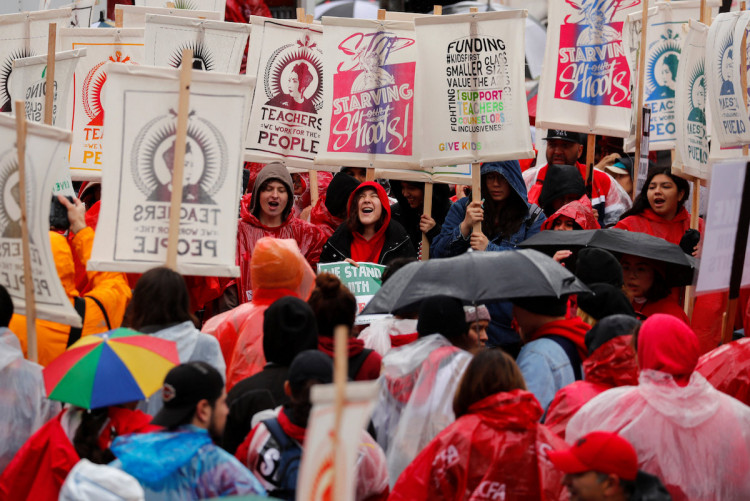San Francisco, a city known for its tech-driven affluence and soaring living costs, is now witnessing a potential upheaval in its education system. The city's public school teachers, represented by the United Educators of San Francisco union, have overwhelmingly voted to authorize a strike, with a staggering 97% in favor. This move intensifies the already contentious contract negotiations with the San Francisco Unified School District (SFUSD).
The union, which represents approximately 6,500 teachers, saw over 3,000 of its members queue up at Balboa High in the Excelsior to cast their votes. While this vote doesn't guarantee a walkout, it sets the stage for a potential strike, which could be decided in a subsequent vote in the coming weeks.
However, the underlying issues go beyond mere contract negotiations. A significant factor fueling the teachers' frustration is the district's payroll system, EMPowerSF. Rolled out in January 2022 at a cost of $9.5 million, the system has been plagued with issues from the outset. Teachers have faced payment discrepancies, with many being unpaid, underpaid, or mispaid. The system's consistent failures have forced educators to scrutinize their paychecks meticulously, turning a routine process into a source of anxiety.
The payroll debacle has had profound implications. Teachers have been inadvertently unenrolled from essential services like retirement, health, and dental plans. In a particularly distressing incident, a 20-year SFUSD paraeducator, Eddy Alarcon, had to grapple with insurance companies after his healthcare was erroneously terminated during his medical leave.
Union president Cassondra Curiel emphasized that the payroll issues have significantly contributed to the current sentiment, with the EMPower debacle traumatizing the city's educators. The situation has fostered a sense of unity and vigilance among the teachers, evident in the near-unanimous vote to authorize a strike.
While the district has made efforts to address the concerns, offering what it termed a "historic contract package" that included substantial raises and other benefits, the union deemed the proposal insufficient. They argued that the district's offer fell short in terms of pay hikes and was contingent on ambiguous budget cuts.
The SFUSD is grappling with a staffing crisis, with a quarter of its teaching positions and custodial roles unfilled. The city's educators are also undercompensated compared to their peers in other parts of California, further exacerbating the discontent.
In addition to the teachers, other unions representing school staff have also expressed their dissatisfaction. SEIU 1021, which represents school custodial, cafeteria, and other staff, recently voted overwhelmingly to authorize a strike. The San Francisco Building and Construction Trades Council, representing tradespeople in schools, is also seeking strike authorization.
The potential for simultaneous walkouts by multiple unions presents a daunting challenge for the school district. As negotiations continue, the district emphasizes its commitment to reaching an agreement and ensuring the best for its students.
The city now waits with bated breath. A teachers' strike could have far-reaching consequences, affecting students, parents, and the broader community. It could also influence upcoming events, such as the proposed March 2024 $1 billion school bond, which may struggle to gain traction without union support.
As the clock ticks, the city hopes for a resolution that keeps its educators in the classroom and its students on the path to success.




